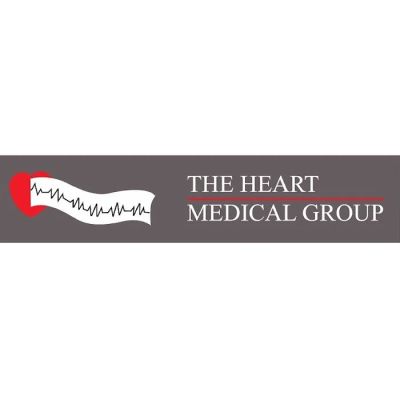- 1-Understanding-the-Link-Between-Plant-Nutrients-and-Heart-Health
- 2-Key-Plant-Nutrients-that-Support-Cardiovascular-Health
- 3-How-Plant-Based-Diets-Help-Prevent-Heart-Disease
- 4-Real-Life-Stories-of-Heart-Health-Transformation
- 5-Practical-Steps-to-Add-More-Plant-Nutrients-to-Your-Diet
- 6-How-HeartCare-Hub-Supports-Your-Journey-to-Heart-Health
1. Understanding the Link Between Plant Nutrients and Heart Health
When we talk about heart health, most people think of exercise or cutting back on red meat. But science increasingly shows that one of the most powerful tools for protecting your heart is found in plants. Understanding how to prevent heart disease with plant nutrients begins with recognizing the crucial role of vitamins, minerals, and phytochemicals — the natural compounds that give fruits and vegetables their vibrant colors and disease-fighting power.
Plant nutrients, such as antioxidants and flavonoids, work at a cellular level to reduce inflammation and protect arteries from plaque buildup. These compounds help maintain healthy blood pressure, regulate cholesterol, and even support better blood sugar control — all critical factors in preventing heart disease.

2. Key Plant Nutrients That Support Cardiovascular Health
2.1 Antioxidants: The Cellular Shield
Antioxidants like vitamin C, vitamin E, and polyphenols act as your heart’s natural defense system. They neutralize free radicals — unstable molecules that damage blood vessels and accelerate aging. Berries, leafy greens, and dark chocolate are particularly rich in these powerful compounds. Studies from the American Heart Association have shown that people who consume antioxidant-rich diets have a lower risk of coronary artery disease.
Atlanta Heart Specialists
atlanta heart specialists
4375 Johns Creek Pkwy #350, Suwanee, GA 30024, USA

2.2 Omega-3 Fatty Acids from Plant Sources
While fish oil often gets the spotlight, plant-based omega-3s from chia seeds, flaxseeds, and walnuts also play a crucial role in heart health. They help reduce triglyceride levels and prevent arterial stiffness. Including a tablespoon of ground flaxseed or a handful of walnuts in your daily meals can significantly boost your cardiovascular protection naturally.
2.3 Dietary Fiber: The Silent Heart Hero
Fiber, especially soluble fiber found in oats, beans, and fruits, binds to cholesterol in the digestive system and helps eliminate it from the body. Research shows that people who consume at least 25–30 grams of fiber daily have significantly lower risks of heart disease. Fiber also helps manage blood pressure and supports a healthy gut microbiome, which is increasingly linked to cardiovascular wellness.
2.4 Flavonoids and Phytosterols
Flavonoids, found in tea, apples, and citrus fruits, improve blood flow and support vascular function. Phytosterols, present in nuts and seeds, compete with dietary cholesterol for absorption, effectively lowering LDL (bad) cholesterol levels. These compounds, when combined, form a natural defense system against heart disease progression.
3. How Plant-Based Diets Help Prevent Heart Disease
3.1 Reducing Inflammation and Oxidative Stress
Plant-based diets emphasize whole foods that are naturally anti-inflammatory. Chronic inflammation is a key factor in heart disease, often caused by processed foods, sugar, and saturated fats. By switching to plant-based meals, you give your body the nutrients it needs to repair and rejuvenate. Leafy greens, legumes, and colorful vegetables are not just side dishes — they’re the foundation of cardiovascular health.
3.2 Regulating Blood Pressure Naturally
Potassium-rich plant foods like bananas, sweet potatoes, and avocados help counteract the effects of sodium, lowering blood pressure naturally. Magnesium — found in spinach, almonds, and black beans — supports proper heart rhythm and muscle relaxation. Together, these minerals form the backbone of a naturally balanced circulatory system.
3.3 Supporting Healthy Weight and Cholesterol Levels
Excess weight is one of the leading contributors to heart disease. Plant-based diets are naturally lower in calories and saturated fats, making weight management more achievable. People who adopt a diet rich in vegetables, fruits, whole grains, and legumes often see improvements in their cholesterol levels within weeks.
4. Real-Life Stories of Heart Health Transformation
One of the most inspiring examples comes from a 54-year-old teacher named Paul, who had struggled with high cholesterol and hypertension for years. After his doctor recommended adopting a more plant-based diet, he started small — replacing processed snacks with almonds, incorporating salads into lunch, and choosing plant-based proteins for dinner. Within six months, his cholesterol dropped by 30%, and his energy levels soared. “I didn’t just feel better — I felt younger,” he shared.
Another story involves Maria, a registered nurse who shifted to a diet rich in leafy greens, lentils, and berries after a family history of heart disease. She not only improved her own heart health but also inspired her patients to follow similar paths. Her story is a reminder that prevention truly begins in the kitchen.
5. Practical Steps to Add More Plant Nutrients to Your Diet
5.1 Start With Small Changes
Transitioning to a plant-rich lifestyle doesn’t have to be overwhelming. Begin by adding one plant-based meal per day. Swap meat for beans, use olive oil instead of butter, and load your plate with colorful vegetables. Gradually, your taste buds will adapt, and your body will thank you.
5.2 Prioritize Variety and Color
The colors on your plate tell a story — red tomatoes for lycopene, orange carrots for beta-carotene, and purple grapes for resveratrol. Each color represents a different set of nutrients that collectively protect your heart. Aim for at least five different colors in your meals daily.
5.3 Stay Hydrated and Mindful
Hydration supports nutrient absorption and circulation. Water, herbal teas, and fresh juices made from greens and berries provide hydration with added benefits. Mindful eating — slowing down, chewing thoroughly, and savoring flavors — also supports better digestion and nutrient uptake.
6. How HeartCare Hub Supports Your Journey to Heart Health
At HeartCare Hub, we believe prevention is the best medicine. Our mission is to empower individuals with the knowledge and tools to take charge of their cardiovascular well-being through nutrition and lifestyle changes. From curated supplements and superfoods to heart-healthy meal plans, we provide everything you need to make plant-based living sustainable and enjoyable.
Learning how to prevent heart disease with plant nutrients isn’t just about avoiding illness — it’s about creating a vibrant, energetic life fueled by the power of nature. Whether you’re new to plant-based eating or looking to deepen your commitment, HeartCare Hub is here to guide you toward lasting heart health, one meal at a time.






















Deborah Heart and Lung Center
deborah heart and lung center
200 Trenton Rd, Browns Mills, NJ 08015, USA